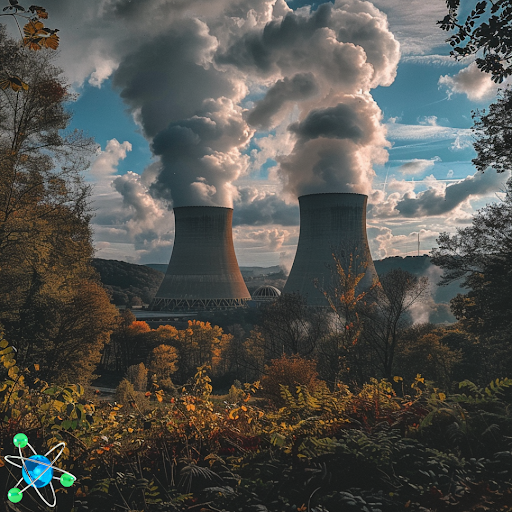
- Virginia’s largest utility, Dominion Energy, is exploring the use of small modular reactors (SMRs) to meet rising electricity demands and reduce greenhouse gas emissions, with a project potentially at the North Anna nuclear power plant site.
- Despite challenges like the cancellation of an Idaho SMR project due to high costs, interest in SMRs is growing, with ongoing projects in Tennessee and plans by Bill Gates’ company in Wyoming, while Virginia aims for carbon-free electricity by 2050.
- SMRs face opposition due to cost, safety, and waste concerns, but the Nuclear Regulatory Commission has approved NuScale Power’s design and is reviewing other SMR projects, indicating potential for future development.
On Wednesday Virginia’s largest utility revealed its intention to investigate the potential of employing small nuclear reactors to address rising electricity demands and cut down on greenhouse gas emissions.
Nuclear power is gaining traction as a desirable alternative for states moving away from coal, oil, and other fossil fuels. Advocates of the next generation of smaller reactors argue that they will be more cost-effective and faster to deploy.
Last year, a project to construct the first SMR in Idaho was terminated due to escalating costs and insufficient interest from subscribers. However, a pilot project is currently progressing in Tennessee, and Bill Gates and his energy company intend to establish a commercial SMR plant in Wyoming.
On Wednesday, Dominion Energy Virginia announced that it has requested SMR companies to assess the viability of developing a project at the site of its current North Anna nuclear power plant near Richmond. Speaking alongside its cooling towers, Dominion CEO Robert Blue highlighted that nuclear power already constitutes 90% of Virginia’s carbon-free electricity. Under a new state law, the company has been granted permission to investigate the utilization of SMRs, with costs limited to $1.40 per month for an average residential customer. Blue expressed confidence that the actual cost impact would be significantly lower.
In 2020, Virginia established a goal for all of its electricity to be sourced from carbon-free options by 2050. During a news conference on Wednesday, Governor Glenn Youngkin emphasized the importance of adopting new technologies for generating power.
“We can’t build enough wind,” Youngkin said. “We can’t build enough solar in order to power the Virginia of the future. We need all of the above.”
According to a 2022 Associated Press survey of energy policies across all 50 states and the District of Columbia, a significant majority—approximately two-thirds—believe that nuclear energy will play a crucial role in replacing fossil fuels.
On the other hand, opponents of small modular reactors (SMRs) raise concerns about their cost compared to wind and solar, as well as safety issues and the challenge of nuclear waste storage. Some environmentalists share these concerns, and a 2022 study led by Stanford indicated that SMRs could produce more waste than traditional reactors.
Despite these reservations, interest in SMRs is growing. In January 2023, the Nuclear Regulatory Commission approved the first design from NuScale Power, based in Oregon. NuScale had collaborated with Utah utilities to demonstrate a six-reactor plant at the Idaho National Laboratory, capable of powering over 300,000 homes. However, the project was halted in November due to cost increases exceeding 50% over two years, reaching $89 per megawatt hour. Moreover, insufficient subscriptions from local power providers made it infeasible to continue the project.
Scott Burnell, a spokesperson for the Nuclear Regulatory Commission (NRC), confirmed on Wednesday that the NuScale Power design remains certified and open for consideration by companies. Additionally, the NRC is reviewing designs for other locations. Burnell noted that the NRC has granted a construction permit to Kairos Power, which is developing a test version of an SMR in Oak Ridge, Tennessee, and has also submitted an application for a larger test version at the same site.
Furthermore, TerraPower, chaired by Bill Gates, has submitted an application under review for using an SMR in a commercial power plant in Kemmerer, Wyoming.
“We have several other reactor designers who are talking to us about potentially applying, either for other construction permits or to have their designs generically approved,” Burnell said. “So there are a lot of other names (of companies) that are in discussions with us. But no formal applications at this point.”
